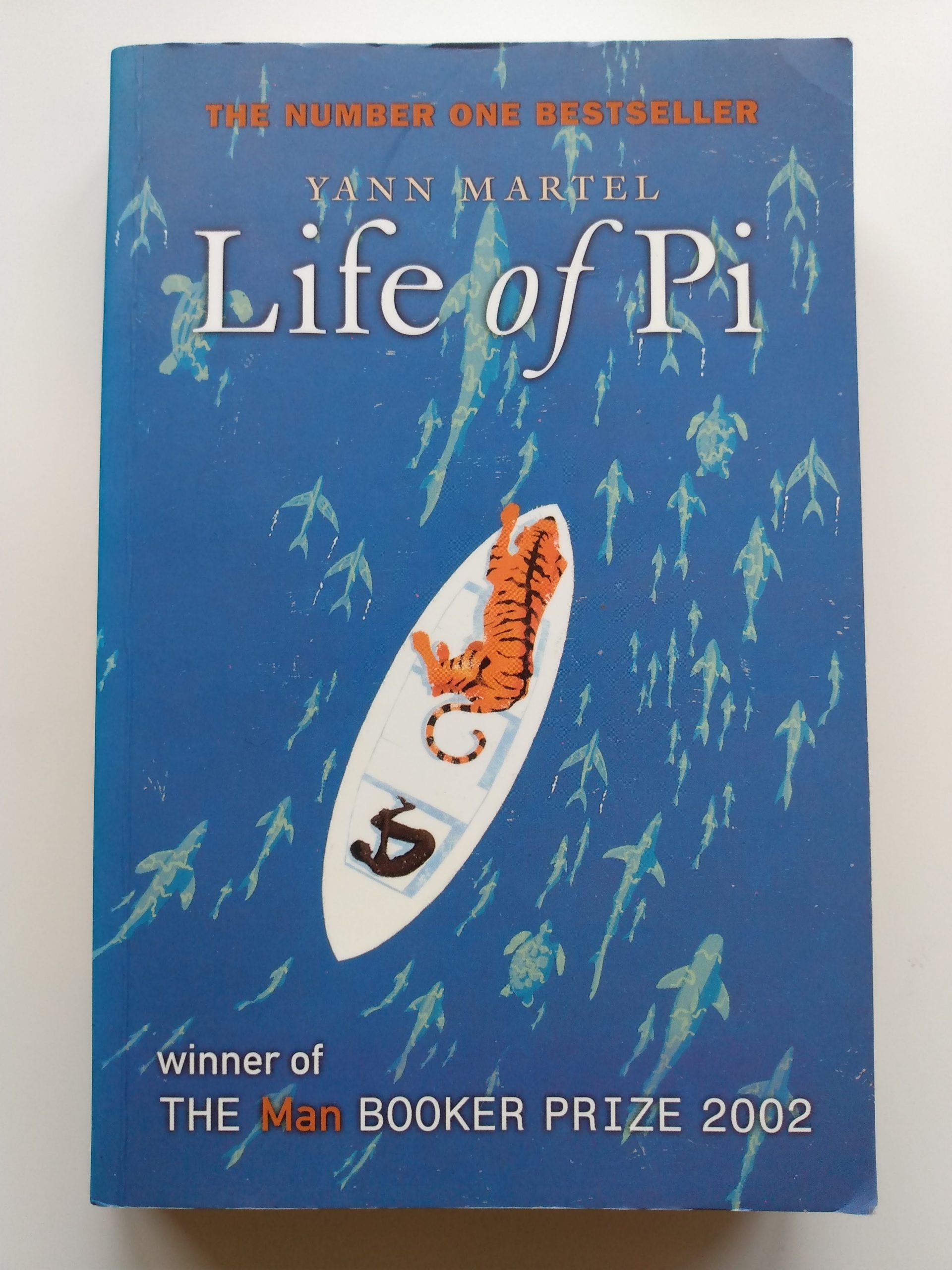Life of Pi, by Yann Martel
It feels like quite a timely moment to be reviewing 'Life of Pi,' given that the recent stage adaptation has just scooped a number of Olivier awards. Incidentally, I would be fascinated to see how they have managed to stage it - the vast majority of the action takes place on a boat in the middle of the sea (hardly the most exciting set), and so much of the interest and excitement in this novel comes from the main character's thoughts and his first-person narrative. It's a challenging one, but they have evidently done an excellent job!

Life of Pi tells the story of a teenage boy called Pi Patel. He and his family and a number of animals from their family-owned zoo are travelling on a cargo ship on their way to Canada when a terrible storm hits the ship and causes it to sink. Pi finds himself stranded on a lifeboat in the middle of the Pacific, along with a zebra, a hyena, an orangutan, and a Royal Bengal tiger. So the story unfolds.
I should warn you now that I am going to discuss the ending of this novel. (I know I would be much miffed if the ending of something was spoilt for me, so if you don't want to know, here's your warning!) I had an interesting conversation with my mum about the ending of 'Life of Pi,' because she doesn't like the way it ends, and I am intrigued by it. Of course, Pi survives, a fact that is set out from very early on, but after he reaches land there is another whole section of the novel, wherein lies the ambiguity.
The problem is that when Pi finally makes it to solid ground, and staggers off his boat after 227 agonising days on the water, he doesn't get the triumphant happy ending we readers expect. Martel constructs the final section of the novel as an interview - a playscript - whereby two men from the Maritime Department in the Japanese Ministry of Transport (who dispatched the original cargo ship that sank) interrogate Pi about his experiences. And they don't believe a word of his story.
We readers feel that Pi deserves celebrating for his miraculous survival; we want glory, we want admiration, we want a massive party. But what we get is these two apathetic strangers, who are more concerned about their cargo ship business and how bad the incident looks on them than about Pi's wellbeing, whose snide asides in Japanese are cleverly printed in a different font so we can understand their snarky private comments, and who don't believe anything Pi says. The whole section totally undermines Pi's courage and endurance, and is incredibly frustrating.
So we have to ask ourselves - why? Why construct the novel to end like this? It must have been a deliberate decision. I gave this some thought, and I have reached the conclusion - rightly or wrongly - that the ending of 'Life of Pi' is actually extremely clever.
The reviewer writing for the Irish Times, whose words are quoted on the back of my copy, hit the nail on the head: Life of Pi is a book about 'belief in its many guises.' There is undoubtedly an overarching theme of 'belief' in this novel. In the first section of the book, when Martel introduces us to the young Pi, we see that Pi has committed himself to Hinduism, Christianity and Islam. There are some fascinating exchanges between Pi and the different religious leaders, some insightful philosophical narration about the merits of a life of faith and the drawbacks of agnosticism, and one particularly amusing chapter when the Hindu, Christian and Muslim religious leaders all bump into Pi and his parents on a walk at the same time, and Pi's unconventional faith life is exposed!
The middle section of the novel, where Pi is on the lifeboat, is inherently philosophical. Pi's faith in God, Allah and the Hindu gods is largely what keeps him going, but this section is also characterised by a huge amount of self-belief. Pi is largely in the company of his own thoughts, and Martel's use of a thoughtful and philosophical character in an extended life-or-death situation creates fertile ground for some deep discussions about life's meaning, and about human-ness and about hope.
And then in the last section, we are confronted with sceptics, who simply cannot believe the miracle before their eyes. They are completely at odds with the faith-filled character we have grown to love, and they challenge Pi's story so much that they even succeed in persuading him to tell an alternative tale, a more believable one. Pi's alternative recount is so well-crafted, matching his original with such beautiful parallels, and at the same time sounding considerably more plausible, that I confess for one small moment I did wonder whether it was the second story that was the truth, and that I had been fooled all along by simply believing what I read. Then I despised myself for doubting Pi, and sternly told myself off for straying onto the side of the sceptics.
And that is what is clever about the final section of the novel. It is thought-provoking. It calls into question the story you have just read, and challenges you to have faith in something miraculous that you cannot prove. It forces you to think about truth and belief, which are ultimately the themes pervading the whole novel. This, I think, is what makes 'Life of Pi' more than just a nice story. If it had ended joyously as my mum and I wished, it would have been a great and epic tale. But by subverting this expectation, denying us our perfect, all-loose-ends-neatly-tied happy ending, Martel gives his novel that extra layer, that sophisticated spark, that thrilling ambiguity. (And anyway, if you read the interviewers' report, which Martel includes as a sort of epilogue, you see that even the sceptics do actually decide to believe Pi after all - so we still get a taste of the happy ending we longed for.)
In conclusion, I very much enjoyed this book. The first section made me smile, the middle section had me on the edge of my seat, and the final section flummoxed me, but I decided that it was very clever. I cannot deny that ambiguous and unexpected endings are seriously growing on me...
